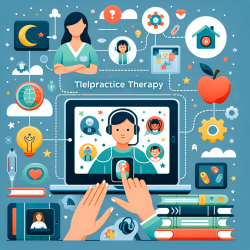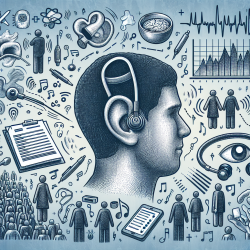Introduction
The COVID-19 pandemic has profoundly impacted educational systems worldwide, with school closures posing significant challenges for children, especially those with Attention-Deficit/Hyperactivity Disorder (ADHD). The research article titled "Difficulties in Managing Children’s Learning among Caregivers of Children with Attention-Deficit/Hyperactivity Disorder during the COVID-19 Pandemic in Taiwan: Association with Worsened Behavioral and Emotional Symptoms" provides valuable insights into these challenges and offers strategies to improve learning management for children with ADHD.
Understanding the Challenges
According to the study, a staggering 85.3% of caregivers faced difficulties in managing their children's learning at home, while 28.2% struggled to take their children to afterschool programs. The research highlights that worsened behavioral symptoms, such as increased anger and hyperactivity, were significantly associated with these challenges.
Key Findings and Implications
- Behavioral and Emotional Symptoms: The study found that worsened ADHD, Oppositional Defiant Disorder (ODD), and emotional symptoms were prevalent among children with ADHD during the pandemic. These symptoms were linked to increased caregiver difficulties in managing learning.
- Parental Overprotection: Interestingly, caregivers who exhibited higher levels of overprotection reported lower difficulties in managing learning at home. This suggests that while overprotection may ease immediate challenges, it could impact children's autonomy and motivation in the long term.
- Intervention Strategies: The study emphasizes the need for interventions that address both caregiver skills and children's behavioral symptoms. Enhancing caregivers' abilities to support learning motivation and routine maintenance is crucial.
Practical Steps for Practitioners
Practitioners can play a pivotal role in supporting caregivers and children with ADHD by implementing the following strategies:
- Routine Assessments: Regularly assess both caregiver challenges and children's symptoms to tailor interventions effectively.
- Skill Enhancement Programs: Develop programs that enhance caregivers' skills in managing learning and behavioral issues, focusing on motivation and routine establishment.
- Behavioral Interventions: Implement behavioral interventions to help children manage impulsivity, anger, and opposition, thereby reducing caregiver difficulties.
- Pharmacological Support: Encourage the continuation of effective medication treatments for ADHD to maintain psychological well-being.
- Online Support: Utilize online platforms to provide continuous support and resources to caregivers and children, especially during challenging times like pandemics.
Encouraging Further Research
While the study provides crucial insights, it also highlights the need for further research. Understanding the long-term effects of parenting styles, the impact of digital media use, and the role of gender and age in managing ADHD learning challenges can offer more comprehensive solutions.
Conclusion
The research underscores the importance of a multifaceted approach in supporting children with ADHD and their caregivers. By integrating these findings into practice, practitioners can significantly enhance the learning experiences and emotional well-being of children with ADHD.
To read the original research paper, please follow this link: Difficulties in Managing Children’s Learning among Caregivers of Children with Attention-Deficit/Hyperactivity Disorder during the COVID-19 Pandemic in Taiwan: Association with Worsened Behavioral and Emotional Symptoms.










